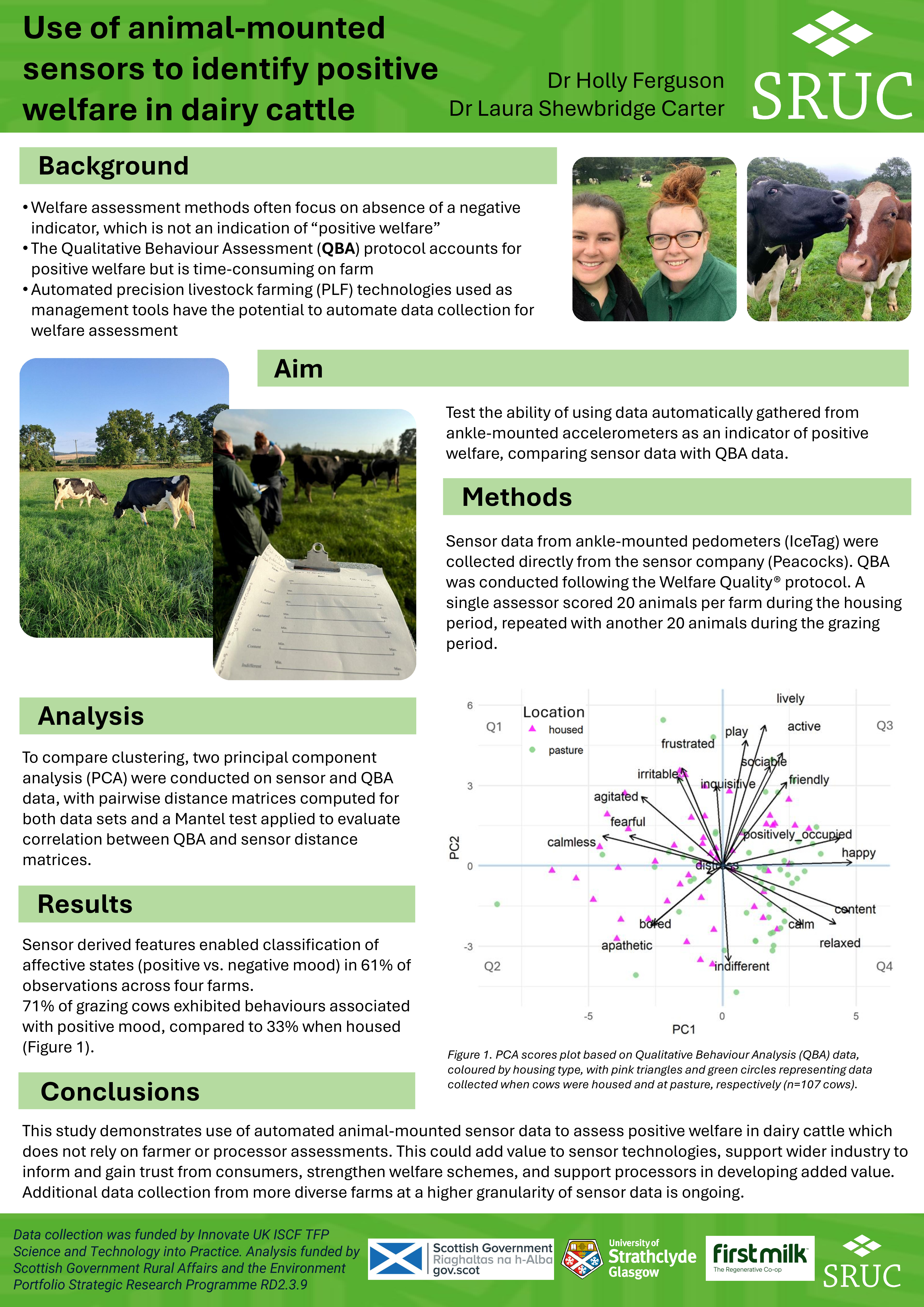Download
Description
Gold-standard welfare assessments of dairy cattle, e.g., Qualitative Behaviour Assessment (QBA), require training and are time consuming in a sector with labour constraints. Utilising existing sensors on farm for management purposes (e.g. oestrus detection) for welfare evaluation could benefit farmers and the wider industry. As with QBA, sensors enable early detection of health/welfare issues, supporting management decisions and productivity, without substantial labour demands. This study demonstrated the assessment of welfare in dairy cattle via automated animal-mounted sensor data, with sensor-derived behavioural features classifying mood states (positive or negative as per QBA scores) in 61% of observations. Demonstrating additional benefits of sensors on farm could further increase uptake of data-driven solutions. Furthermore, this research provides evidence of a potential automated measure of on-farm welfare using technologies commercially available, which could be used to inform and gain trust from consumers, as well as being utilised for welfare schemes and by processors.
